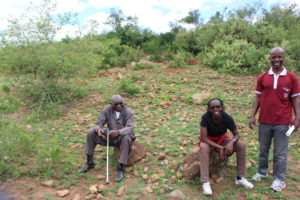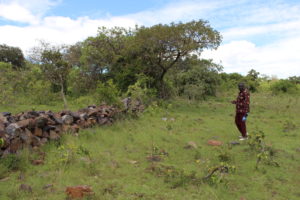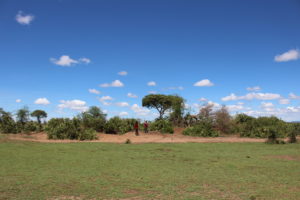Dr Anna Shoemaker, ARCC post-doc has just spent the last month touring around western Serengeti visiting heritage sites in collaboration with local partners in an effort to document and understand the historical ecology of this incredibly varied landscape. The range of sites encountered was vast and included German colonial communication posts, hand-dug 19th/20th century wells, late Iron Age activity areas, innumerable lithic scatters, and fortified hill settlements believed to have been constructed in the 1800s. The ARCC project is extremely grateful to Wilson Machota, David Maganya, Nyangi Mtoka, Paul Bhochi, Johanna Mzalendo Mago, and Mayani Mogoto, among others, for guiding these visits and sharing their historical knowledge of western Serengeti.
In coming months, Shoemaker and colleagues will be conducting excavations at Mokikigiranteme and Kywisahi Hill, two fortified 19th century hill settlements. Goals will be to document the material culture associated with these settlements, ascertain the age of their origins, learn more about the livelihoods of the people occupying these places, and also to build an understanding of how anthropogenic activities over the last c.300 years have transformed the ecology of highland areas throughout the Greater Serengeti Ecosystem (GSE).

Wilson Machota, Nyangi Mtoka and Johanna Mzalendo Mago at Nyakomogo, a fortified settlement believed to have been constructed in the 1800s.
Additionally, research is being conducted on old hand-dug wells in lowland areas. These landscape features have been providing people, livestock, and wildlife in the GSE with water for centuries. Upon encountering a number of these wells in varying stages of use and maintenance, Shoemaker has become inspired to understand how these watering points have shaped vegetation structures and soil nutrient profiles in the wider region.

